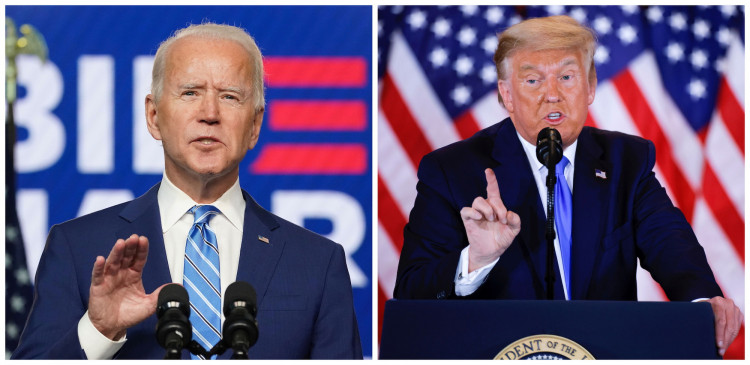The Biden campaign raised $71 million for the 2024 presidential election in the third quarter, considerably surpassing the $45.5 million Trump garnered during the same period. By the end of September, the Biden reelection team held deposits totaling $91 million, intended for staffing and advertising campaigns.
U.S. elections often carry hefty price tags. The total expenditure for the 2020 U.S. election reached $14.4 billion, with presidential campaigns costing $5.7 billion and congressional races $8.7 billion.
Generally, U.S. political contributions fall into two categories: "hard money" and "soft money."
"Hard money" is overseen by the Federal Election Commission and can only come from individual donors, with set limits. These unrestricted donations are made directly to a specific candidate without expecting any form of return, and the candidate receives the money regardless of the election's outcome.
On the other hand, "soft money" isn't given directly to candidates but rather to entities outside of election campaigns, like Super Political Action Committees (SPACs). These funds aren't regulated by federal campaign finance laws and can be raised and spent without restrictions, as long as they don't directly benefit the candidate. Often, these donors maintain connections with the presidential team after the candidate takes office, hoping to influence policy decisions.
According to the Bipartisan Campaign Reform Act of 2002, neither candidates nor any related committees are allowed to use "soft money" in federal elections. In May of this year, organizations such as the Campaign Legal Center sued the Federal Election Commission, alleging that Trump illegally moved $60 million in "soft money" from his political committee, "Save America," to the SPAC "Make America Great Again." This SPAC has significantly supported Trump's potential 2024 run.
The Campaign Legal Center suggests Trump's move could inspire other candidates to follow suit. Such actions not only keep the public in the dark about precise election expenditures, reducing transparency, but they also allow U.S. politics to remain influenced by capital. Trump's team denies receiving aid from any political party group.
The Biden campaign revealed that small donations represented 49% of its Q3 fundraising. As reported by Reuters, since the end of April, the Biden reelection campaign has organized 75 fundraising events, with more events for affluent donors than the general public.
In the 2020 race, the Biden team raised a total of $1 billion, $700 million of which came from small donations. This quarter, 97% of donations were under $200, with an average small donation amounting to $40. These contributors span all 50 states and various professions, with teachers and nurses being the most common.
U.S. law mandates that SPACs report their donation recipients and amounts to the Federal Election Commission. However, if the donation recipient is an asset-less shell company or a non-profit, they can bypass this requirement. This has led to a surge in "dark money." Funds that remain undisclosed and aim to influence voter decisions are labeled as "dark money."
Typically, candidates utilize SPACs to gather and spend vast amounts of unrestricted funds. Over the past decade, the power of SPACs has grown, becoming the tool for corporations and wealthy individuals to funnel "dark money" into federal elections.
The Guardian highlighted that billions in "dark money" are shaping U.S. politics. In 2020 alone, over $1 billion in "dark money" entered the U.S. electoral system, funding SPACs, advertising blitzes, mail campaigns, and door-to-door canvassing.
In 2022, multiple U.S. media outlets reported the largest known political donation in U.S. history. Billionaire Barre Seid secretly donated $1.6 billion to a political group controlled by Republican Leonard Leo. This group has consistently lobbied against abortion rights, efforts to combat climate change, and has aimed to limit voting rights for citizens.




